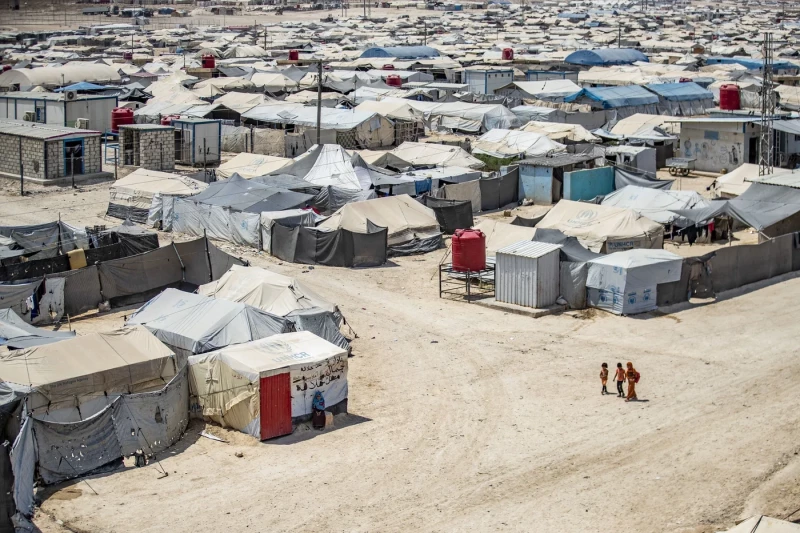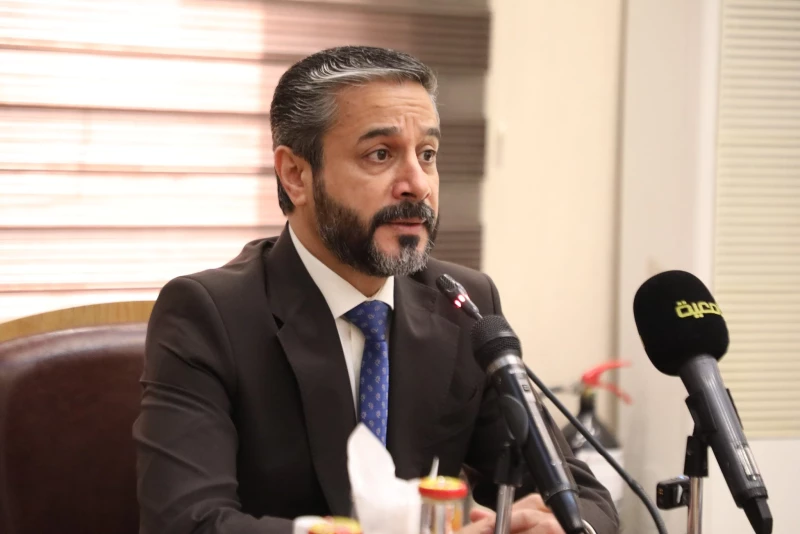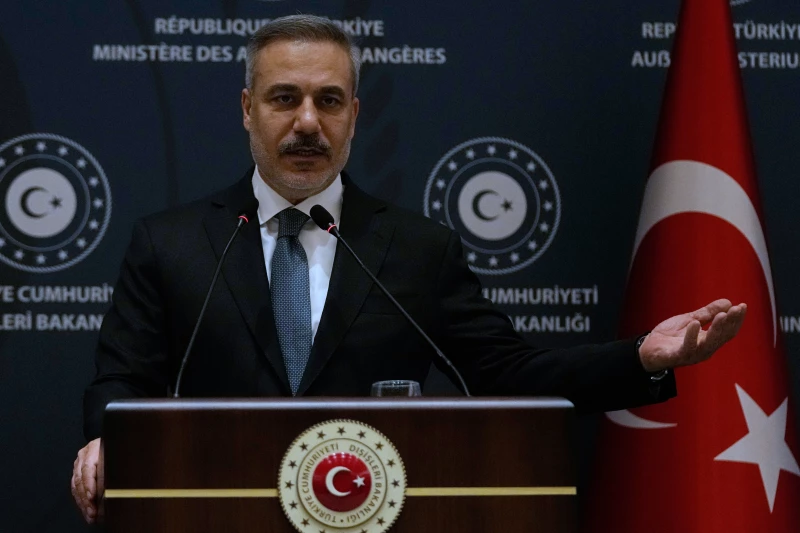The Iraqi parliament is set to carry out the first reading for a long-awaited General Amnesty law, amid ongoing mass executions in the country, on Wednesday, a law that could save the lives of scores of innocent people from the country’s prisons, but could also lead to the release of the guilty too if not implemented properly.
The law, long-awaited by the families of perhaps hundreds of people held in Iraqi prisons, redefines the concept of affiliation to terrorism, through which the cases of many in Iraq will become easier to resolve.
According to the new amendment, affiliation to terror groups is clearly defined as anyone who “worked in the ranks of terror groups, trained fighters for them, carried out criminal activities, or assisted in any form terrorism activities, or had their names in the group’s files,” according to a copy obtained by The New Region.
A member of the Iraqi parliament on Tuesday told The New Region that the law was among the current cabinet’s agenda, but political tensions had put it aside for a while.
“This was part of the government’s agenda when it was voted in and was supposed to be addressed two years ago, but due to disagreements it was not addressed,” Rebwar Hadi, head of the parliamentary legal committee, told The New Region.
Hadi added that the law does not offer retrials for those already sentenced, however people who were sentenced previously and now it appears they were innocent should be able to benefit from such amnesty.
Sunnis being largest supporters of the law
The Amnesty law was among the main requests of the Sunni component upon the election of Prime Minister Mohammed Shia’ al-Sudani.
They believed that following the years of war since 2003 and after the so-called Islamic State rule, their community were among the most affected by unjust mass arrests and terrorism charge allegations, given that many of the insurgencies would originate from Sunni majority areas in the country.
To some, there was the sentiment that this was the payback from now Shiite-ruled Iraq for years of oppression under the former regime’s Sunni rule, however the lives of many innocent people were caught in the crossfire.
“The amnesty law is one of the most important laws that was agreed upon between Taqaddum and other parties,” Mohammed Mohanad al-Mohammedi, MP on behalf of the Sunni Taqaddum, told The New Region on Tuesday. “The most important request of Taqaddum was to get this law passed, we were willing to give up any office for the passage of amnesty for those that are innocent.”
Taqaddum, led by former parliamentary speaker Mohammed al-Halbousi, has been the most consistent Sunni party, in terms of publicity, since 2003. They have managed to gain a majority of the Sunni votes in back-to-back elections, an achievement no post-Saddam Sunni faction has been able to achieve.
“There are people in prisons that are arrested over a picture that ISIS has appeared in,” Mohammedi said, stressing that their party is with the “just punishment of those who are guilty.”
However, with the parliament set to discuss the matter on Wednesday, and with a lack of clarity about whether it will be immediately voted on or not, the fate of many remain on the line in Iraqi prisons, especially since the current president of the country does not seem to resist ratifying death sentences.
Iraq on Tuesday executed ten people who were sentenced on terrorism related charges, the latest of a series of mass executions carried out by the country since President Abdul Latif Rashid was sworn in.
Such consistency in carrying out death sentences has been a matter of concern to rights watchdogs both locally and internationally.
According to Amnesty International in April, at least 150 people in Nasiriyah’s notorious central prison were awaiting their executions after Rashid had ratified their death sentences. The watchdog added that around 8,000 prisoners, mostly charged with terrorism related crimes, are believed to be on death row in the country.
That number comes on top of many more who still await due trial process.
According to Human Rights Watch (HRW), terrorism trials in Iraq “have generally been rushed, based on a defendants’ confessions—often obtained under torture—and have not involved victim participation.”\
The law at first glimpse
However, while the passage of such amnesty could serve as solace for many families who have long awaited the fate of their children, it also raises the worry of actually guilty people benefitting from the amnesty given the country’s still developing judicial system.
“The General Amnesty bill could be a step in the right direction and life-changing for those wrongfully imprisoned, but alone it is not enough,” Sarah Sanbar, Iraq researcher at HRW, told The New Region on Tuesday. “It needs to be coupled with reforms to strengthen the Iraqi judiciary and meticulous legal scrutiny of individual cases overseen by an independent judicial committee, particularly in cases where there are concerns that due process or fair trial guarantees were not respected.”
Sanbar noted that the Iraqi justice system is far from perfect and the flaws in it have been documented over the years “including an overreliance on confessions, including those extracted through torture, faulty intelligence obtained through secret informants, rushed trials that did not involve victim participation, and multiple due process violations.”
“Under those conditions, wrongful convictions are not surprising. It's crucial that Iraqi authorities ensure a pathway for the release of those wrongfully imprisoned, and that this is balanced by the need to ensure people guilty of crimes don't get off scot-free,” Sanbar added.
Amnesty International’s Iraq researcher echoed a similar sentiment, however raised more concern on how such a law could be taken advantage of and what the repercussions could be in case of a false implementation.
“There are major concerns with the Amnesty Law in that it could result in perpetrators of gross human rights violations not being held accountable - further fueling the widespread impunity in the country,” Razaw Salihy told The New Region on Tuesday.
“It is also no silver bullet for the Iraqi justice system that has sent thousands to await their death despite evidence of mass arbitrary arrests and torture tainted evidence,” she added.
To her, the reason that such a law would not bring immediate solace to Iraq is due to the country’s continuation of carrying out the death penalty.
“Iraq’s recent spike in mass executions - with brazen lack of transparency as to the numbers - signals no hope either that any legislation changes - especially one this broadly worded - will lead to justice for anyone,” she said, calling on authorities to “uproot and address the flaws in its justice system if any such laws are to make a difference to the fate of those that fell victim to - and continue to suffer - unspeakable violations.”
However, the law in itself is not so bad if implemented properly, as it could end the suffering of many families, some of whom have been suffering for almost two decades, longing to see their family members again.
“If implemented strategically, the Amnesty Law could also serve as a crucial step toward national reconciliation. By addressing past and present grievances, the legislation could help mend the social fabric torn by years of conflict and violence. This, in turn, could promote long-term stability and peace in the country,” Alannah Travers, a researcher and consultant working on these issues with organizations including the Coalition for Just Reparations (C4JR), told The New Region on Tuesday.
However, no one who believes that the law is going to bring justice to those who have been wrongfully arrested, is ignoring the risks that would come with it if exploited.
“The proposed Amnesty Law in Iraq has the potential to correct injustices and foster national healing. However, it also carries significant risks, including the potential for political manipulation. For the law to be effective and just, it must include measures to differentiate between the innocent and the guilty, ensuring that perpetrators remain accountable for their actions,” Travers said.

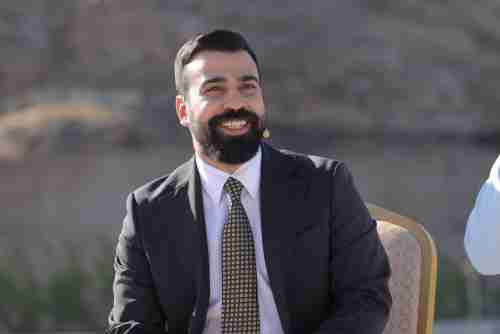
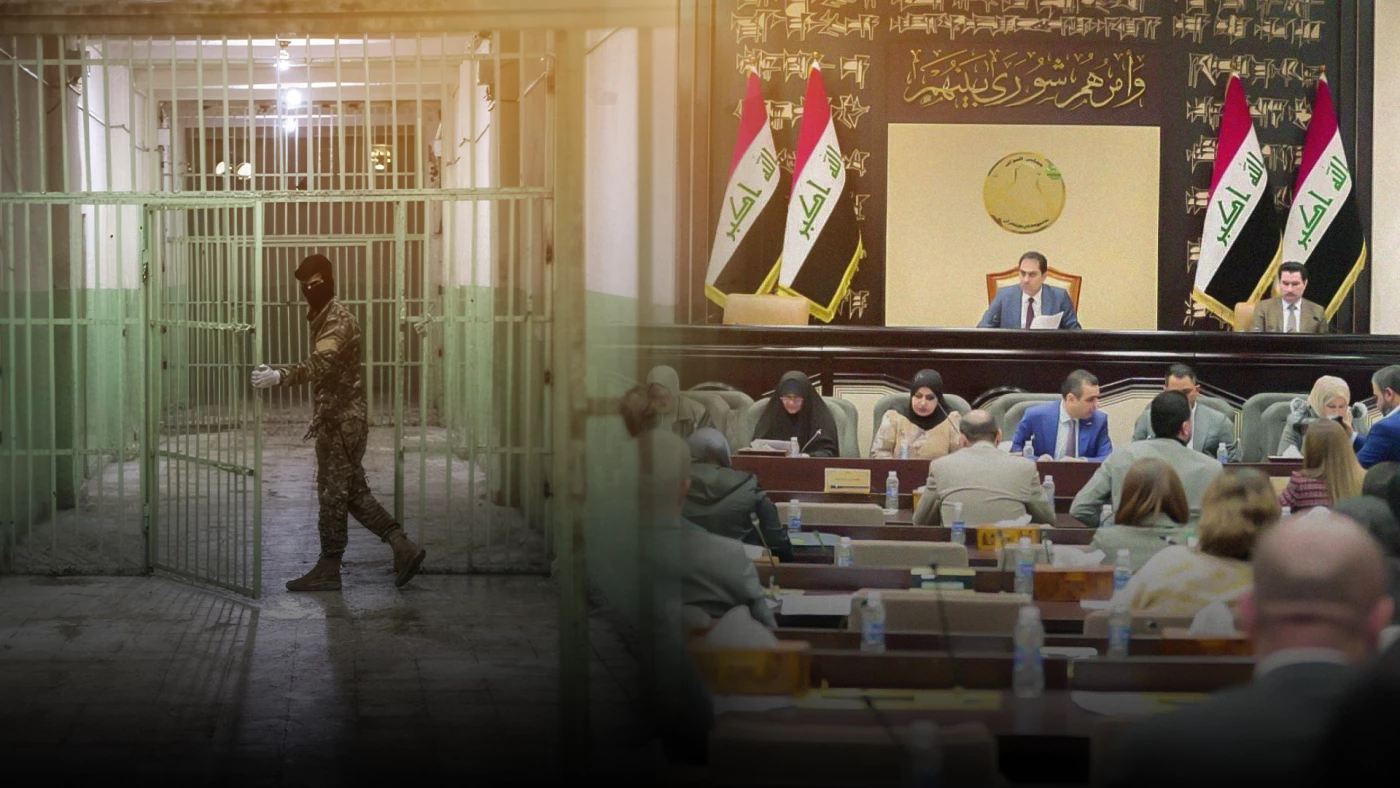
 Facebook
Facebook
 LinkedIn
LinkedIn
 Telegram
Telegram
 X
X
